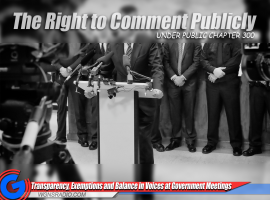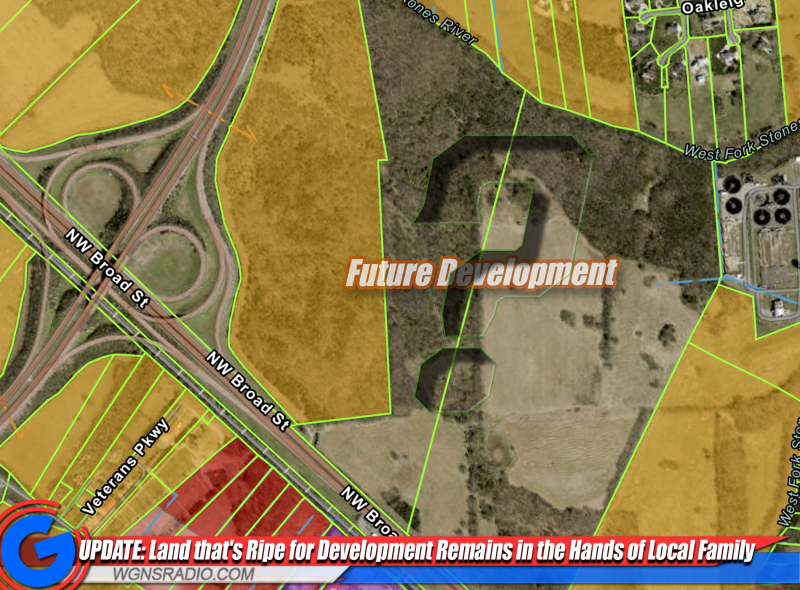"Prepared. Not Scared" is 2019 Theme
"September is preparedness month, and it is a good reminder to all Tennesseans that now is always a good time to be prepared," said Governor Bill Lee. "Emergencies and disasters can happen anytime, often without warning and citizens need to take action to be ready for when the unexpected comes."
As a nationwide event, now in its 15th year, National Preparedness Month serves as a month-long observance to encourage households, businesses, and communities to be ready now before disasters occur.
The Tennessee Emergency Management Agency (TEMA) will highlight key preparedness topics, such as youth preparedness and disaster costs, throughout September to emphasize important components of individual and community disaster planning.
The planning topics include:
Week 1, Sept. 1 to Sept. 7: Save Early for Disaster Costs
Week 2, Sept. 8 to Sept. 14: Make a Plan
Week 3, Sept. 15 to Sept. 21: Youth Preparedness
Week 4, Sept. 22 to Sept. 30: Get Involved in Your Community's Preparedness
"Just one year ago, TEMA was coordinating the deployment of emergency personnel to help with the hurricane response in Florida and the Carolinas" said TEMA Director Patrick Sheehan. "Tennesseans should not wait for the next disaster to strike and then hope for help to come. Most likely, neighbors and friends will be the first help at the disaster scene before the first responders arrive. So, it's important to prepare in advance in order to help yourself, your family, and your community."
The First Step to Preparedness - An Emergency Plan
The first step in emergency preparedness is to create a written emergency plan for you and your family.
Basic emergency plans include information such as:
• The evacuation procedure for your home, in case of fire or flood, so everyone will know which exits to take during a home emergency;
• How family members should contact each other if they are separated in a disaster;
• Where family members should meet after evacuating their home, or if your neighborhood is being evacuated; and,
• The important contact phone numbers for work locations, medical providers, and insurance carriers.
Also, check the emergency plans and preparations for places where you and your family spend time such as schools, day cares, sports facilities, and faith organizations. It is also important to have an emergency kit in every automobile your family uses.
Finally, make sure you exercise your plans with your family. Practice a family fire drill or try out your communication plan on a day when you know family members will be separated.
Emergency Kit Basics
The contents of a well-stocked disaster kit vary depending on household needs.
There are certain essentials for any kit:
• Water - at least a gallon per person per day, for three to five days
• Nonperishable food (such as dried fruit or peanut butter) - enough per person for three to five days
• Pet supplies
• Pet food and water
• Baby supplies (formula, diapers)
• Weather radio (battery-powered or hand-crank) and extra batteries
• First-aid kit
• Prescription medications and glasses
• Flashlight and extra batteries
• Dust mask (to filter contaminated air)
• Plastic sheeting and duct tape (to shelter in place)
The Federal Emergency Management Agency (FEMA) sponsors National Preparedness Month annually to strengthen the nation's preparedness capabilities and to encourage a shared responsibility among the general public to be prepared and ready for anticipated and unexpected emergencies.
"While government plays a role, individuals, organizations, and businesses must be ready for the unexpected," said Gracia Szczech, regional administrator for FEMA Region IV in Atlanta. "National Preparedness Month reminds us to take action. Prepare, now and throughout the year, for emergencies that could affect us where we live, work and visit. Disasters don't plan ahead, but you can."
More information on emergency plans and preparedness can be found at www.ready.gov, with sections that include family emergency communication plans and emergency plans for kids.













